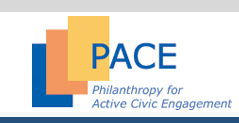Congressman Vance McAllister admitted Thursday to voting against legislation in the U.S. House anticipating he would get a political contribution for his vote. A Republican from Swartz [LA], McAllister spoke about the matter as an example of how “money controls Washington” and how work on Capitol Hill is a “steady cycle of voting for fundraising and money instead of voting for what is right.”
Rep. McAllister actually added that someone told him, “Vote no and you will get a $1,200 check from the Heritage Foundation. If you vote yes, you will get a $1,000 check from some environmental impact group.” Those specific figures suggest quid pro quo corruption, which is illegal and should be formally investigated. But let’s assume that Mr. McAllister was making that part up for color, and the real story was more typical. No one offered the congressman $1,000 for a vote, but he (or an adviser) calculated that if he voted a certain way, he would be more likely to raise money from a given interest. According to the Supreme Court, that kind of influence is not corrupt, which is why I would denounce the Court’s understanding of fundamental ethics.
Conceptually, it might be helpful to understand our campaign finance system as a gift economy. The anthropologists Bronislaw Malinowski and Marcel Mauss discovered that market exchanges are not the only systems that work at large scale and that permit the circulation of goods. It’s also possible to have a whole system (or a subsystem) built on gifts. People give things to each other, and they may do so for non-altruistic reasons–prestige, favor, or an expectation that they will obtain gifts as a result. But there is no prior agreement to reciprocate a gift with something of equal value. In fact, having a prior agreement makes it not a gift.
For instance (as I blogged years ago), Beowulf depicts a gift economy. The hero learns that Hrothgar, king of the Danes, is suffering from the scourges of a monster, so, unbidden, he sails to Denmark to offer his services. After he has killed Grendel (a whole day after, in fact–see line 1784), Hrothgar allows him to choose treasures from his store; Beowulf is “paid and recompensed completely” (2145). The hero sails home and gives everything he has received to his king, Hygelac (2148). Hygelac responds by giving Beowulf an ancient sword, land, hides, and a hall and throne.
None of this is negotiated in advance. As Hrothgar tells Beowulf (in Seamus Heaney’s translation):
For as long as I rule this far-flung land
treasures will change hands and each side will treat
the other with gifts; across the gannet’s bath,
over the broad sea, whorled prows will bring
presents and tokens. (1859-63)
That is all very appealing and noble, but the worthiness of a gift economy depends on what is given. In Beowulf, wives are gifts (see 2017), which is not so good for them. In our Capitol Hill culture, the money it takes to get elected and the votes cast on public policies are treated as gifts. Only if lobbyists are so gauche as to negotiate them as quid pro quo exchanges may they be banned. It is a medieval system–and not in a good way.
The post campaign finance as a corrupt gift economy appeared first on Peter Levine.

 existing practices.
existing practices.











